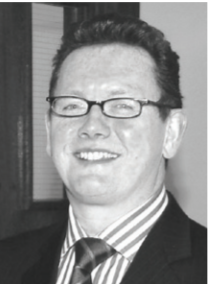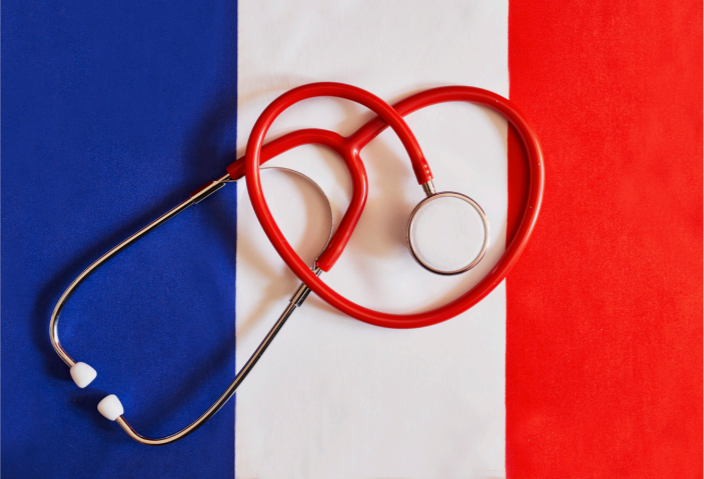Terry Maguire describes his healthcare journey after a recent heart attack and the transition from being a frustrated pharmacist to frustrated patient.
Aconstant burning pain in my chest woke me from a deep sleep around 5am one recent morning. I got up and walked to the bathroom, tripping over my suitcase and waking my sleeping wife. Standing in the
bathroom, I hoped the pain might lessen, but it stubbornly remained.
I had chest pain and breathlessness walking back from the restaurant the evening before. Biarritz has a steep incline up from its roaring surf beaches but the pain had eased when I reached flatter ground and it disappeared, as it normally did, when I stopped walking.
The Friday before, I had a similar episode walking home from work so I now, in the darkness and cloying air of a September morning, knew I was in trouble.
Foolishly attempting not to alarm my wife, I told her I needed to see a doctor, pulled on shorts and a T-shirt, and
walked downstairs to reception. It was a small three-star hotel and I worried no one would be on duty. Thankfully Chloe, who had registered our arrival the day before, was still on. I calmly told her I had chest pain and suspected a heart attack, so she quickly telephoned an emergency number and translated my acute symptoms.
Within 20 minutes an ambulance was outside the hotel, I was placed on a stretcher, blood pressure
and oxygen saturation measured, and my worsening symptoms assessed using Chloe as translator. I was driven off in darkness to the emergency department at the main regional hospital, 15 minutes away in the town of Bayonne.
Passport, European Health Care card and Covid-19 vaccination status were recorded, a PCR Covid-19 test and bloods were taken and I was stretchered into a private room to await a doctor who when he arrived insisted, in broken English, I should not attempt to stand up. By now my confused, anxious wife who was refused a ride in the ambulance had arrived by taxi and was allowed to join me.
The language barrier was difficult with medical staff but we both managed and nervously discussed between us what had just happened and what might be about to happen. Our immediate and long-term future was uncharacteristically uncertain.
Within half an hour, blood tests were back and a heart-attack confirmed, so with a negative Covid-19 PCR test, it was agreed I should be admitted. I was given a bolus dose of antiplatelet medicine to challenge clotting and by 11am, I was in a private ICU bed, my chest and right arm wired-up to an ECG/BP/oxygen saturation machine and a saline drip inserted into my left arm. At 2pm, all went quiet, my wife was asked to leave and I was prepped for theatre and told again I should not attempt to stand up.
By late afternoon, I had a five-year-old stent replaced in my LED coronary artery, but then the complications started. Clots from this failed stent had moved further down the artery and I spent the next four days in ICU, where they pumped a series of clot-buster drugs into my left arm with a view to blasting these imposters out.
Their cunning plan was unsuccessful, so on Sunday I had two additional stents inserted and was allowed to finally stand up and, on the Monday, leave hospital with an impressive medical dossier, all in French, and just
in time to catch my Ryanair flight back to Dublin early Tuesday morning.
I’ve had better holidays and my wife had holidays with much more fun but on reflection, my experience of the French healthcare system was reassuringly wonderful. I would probably have received this level of care had this event happened in Belfast or Dublin, but the irony was that we had planned to do a week of walking on the Camino in northern Spain which we had cancelled due to Covid-19 and instead, decided to make use of the flights, switching from Bilbo to Biarritz for a beach holiday.
Had our Camino plans happened, this medical event would have occurred somewhere in rural northern Spain and I don’t want to speculate what options might have been available, but perhaps that is being unfair to the Spanish healthcare system.
Returning home to Belfast, I attempted to contact my GP, as I was told by my French cardiologist that I must speak to a local cardiologist within four weeks. I had huge difficulty making contact by phone and finally resorted to writing a letter, which resulted in a phone call the next day and an appointment, but a month later, I am still waiting to get an appointment with a cardiologist; the waiting list is 10 weeks.
GPs across the NHS locked the surgery doors on 16 March 2020 and have, it seems, only resumed a basic service. Officially, noone is saying so; it’s an uncomfortable truth and GPs everywhere are making the case that they work harder than ever.
Perhaps they do. When GP spokespersons appear outside their practices to tell us, via their compliant media, how exhausted and burned-out they are, we might be hearing the truth, or witnessing spin at its apogee. Patient access remains constrained to the point of frustration, often manifesting in the pharmacy as
abusive patients venting their ire.
Clots from this failed
stent had moved further
down the artery
and I spent the
next four days in ICU
I am now one of those frustrated patients, as well as a frustrated pharmacist who had possibly had his heart disease exacerbated by the daily dealing with general practice over the past 18 months. This is the stress my French cardiologist was warning me against.
Ordering prescriptions, from some surgeries, is near impossible, with phone calls taking eight-to-10 minutes to be answered, if answered at all. This is requiring a dedicated phone-line in the pharmacy just to manage. Patients who normally order their own prescriptions — and most patients should be doing this — cannot get through, and the expectation is that we have easier access.
In spite of work done in April 2020, most surgeries seem to have stepped-down the dedicated pharmacy telephone lines agreed back then. Patients are visiting the pharmacy asking for yet-to-arrive prescriptions, which is a burden on staff constantly searching for non-existent medicines.
Often, when they have arrived, one or two items are missing and we are forced to search for the prescription form to confirm. This is all very stressful, both commercially and professionally, and I had not appreciated its possible impact on my personal health. I remembered a number of incidents that were particularly difficult.
A patient on anti-rejection medication spent four days trying to access his GP. He ran out of his medicine, as I could not order without faxing a copy of the prescription to the company. This is another gripe, but for another day.
Changes to medicines are also not coming through. One patient stopped on procyclidine continued to get the medicine for three weeks, as we had not been informed. Another patient on lithium, who has been informed by her hospital consultant that her levels were too high, was continued on the same dose. She assumed we were informed and the changes had been made. Controlled drug prescriptions are being telephoned through by reception staff who don’t seem to have an inkling of the requirements of the Misuse of Drugs Act.
It is bizarre, in this golden age of IT, that a 1950s system of telephone calls and paper prescriptions
is still being employed, purportedly to assure safe use of medicines.
In the UK, the NHS is an institution beyond reproach. Critics risk being accused of heresy, so we complain indirectly about lack of investment or poor management. We never, it seems, wonder why, if our beloved NHS is such a great idea, no other country has replicated it or has plans to do so. When I next feel the squeeze on my coronary arteries, I might consider ringing Ryanair rather than 999. Vive La France!
CONTRIBUTOR INFORMATION

Terry Maguire owns two pharmacies in Belfast. He is an honorary senior lecturer at the School of Pharmacy, Queen’s University Belfast. His research interests include the contribution of community pharmacy to improving public health.







